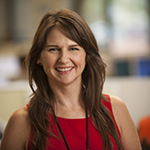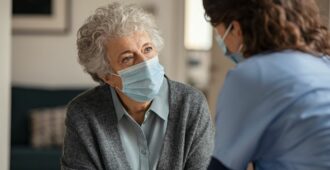

Building a fuller picture of the social and economic burdens faced by people with cancer is key to advocating for programs and policies to address their needs, says Cancer Council NSW (CCNSW) Manager of Policy and Advocacy Kelly Williams.
The need to fill these information gaps is behind a joint project between CCNSW and the Sax Institute’s Analysis for Policy program, which is helping agencies define and answer research questions relevant to their work, by drawing on the rich resource of the 45 and Up Study into healthy ageing.
Ms Williams says there is considerable evidence that the socioeconomic characteristics of both an individual and the area in which they live are related to cancer incidence, cancer stage at diagnosis, morbidity, mortality and survival.
But not enough is known about the ways in which cancer diagnoses affect people’s financial and social situations in the real world – and this is information that could help develop the best policy options to address those problems.
The cost of cancer
“We know the cost of cancer is a problem, with issues like out of pocket costs for medication or treatment and loss of income, but we don’t yet understand the best solutions to advocate for,” Ms Williams says. “We really want to unpack what the burden looks like so we can contribute to making changes that make a difference to people’s lives.”
Ms Williams said new research using the 45 and Up Study and its ongoing sub-study SEEF (Social, Economic and Environmental Study) was underway to provide valuable information, such as whether people had gone without medication due to money shortages, had needed to ask a family member or friend for financial help or had not been able to pay their bills.
The data will allow comparisons between people who are cancer-free and those who have been diagnosed with cancer. It will also give insights into participants’ social connectedness, and into whether the economic and social impacts of cancer differ according to where people live.
Providing extra research capacity
While the Cancer Council has many experienced researchers, Ms Williams said the Analysis for Policy program provided the extra capacity to seek research answers to specific questions that related to the advocacy role.
“We were able to tailor the research to our needs,” she said.
“We are now getting the first results, and can start looking at what the policy implications are, what we need to think further about and about what other questions are raised by the results that we need to pursue.”
Analysis for Policy was developed by the Sax Institute to help our partners build better health systems. It enables health decision makers to use Australia’s largest ongoing research resource – the 45 and Up Study – as a tool to guide timely health planning and investment decisions.
The 45 and Up Study is managed by the Sax Institute in collaboration with major partner Cancer Council NSW; and partners: The National Heart Foundation of Australia (NSW Division); NSW Ministry of Health; NSW Government Family & Community Services – Ageing, Carers and the Disability Council NSW; and the Australian Red Cross Blood Service.
Find out more
- Learn about the 45 and Up Study and the Analysis for Policy program
- Contact the team to see how the Analysis for Policy program can help you.





